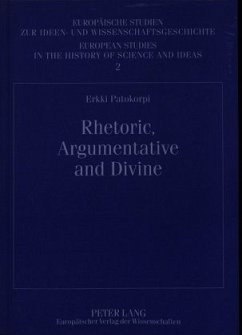Richard Whately (1787-1863), Archbishop of Dublin, was a moralist, philosopher, theologian, logician, rhetorician and Oxford professor of political economy. His treatises on logic and rhetoric dominated the college and university curricula for decades in 19th-century Britain and America. He is the most important early writer on what is now called the theory of argumentation. This sharp and original thinker was a very prominent figure in his own time, and often knowing Whately is knowing what men like J. S. Mill, Whewell, Bentham and Hamultin were arguing against. The present text gives a comprehensive account of Whately's thinking and shows that his early writings form a rich discursive project whose main elements are a relativist theory of knowledge, a presentation of the Christian ethics of duty, and a normative theory of discourse ethics.
